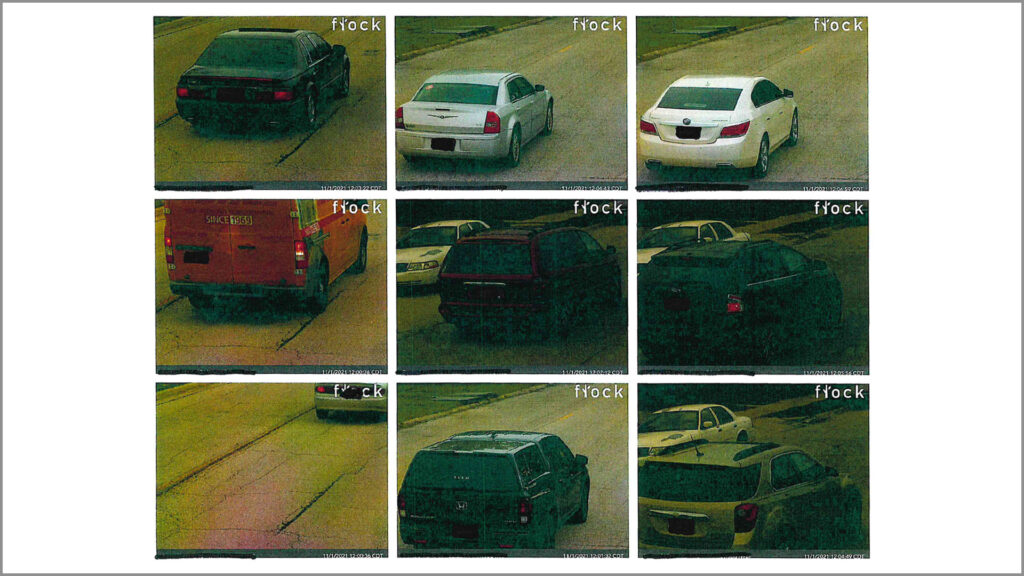
Nearly two months after Chief Bryant Seraphin pushed for the installation of automatic license plate readers (ALPRs) in Urbana, the City Council and the public are still struggling to get honest answers to the most basic questions and concerns.
ALPRs were presented to the City Council Committee of the Whole (COTW) on September 20th of this year, then were placed on the COTW agendas again for October 4th, October 18th, November 1st, and now November 15th (tomorrow evening). The City also hosted two “town hall” meetings on ALPRs on October 28th and 29th.
“Town hall” may not be the most appropriate description since the meetings were monopolized by the Urbana Police Department and the public had little opportunity to give input. In one instance when a member of the public tried to express concerns, Council member Shirese Hursey, a staunch supporter of ALPRs, rushed up to the stage to grab the microphone so she could publicly admonish the speaker.
An ALPR concern that has been raised repeatedly is privacy and the retention and access to the ALPR data. Chief Seraphin has affirmed several times that the ALPR data is exempt from the Freedom of Information Act (FOIA). More recently, he explicitly made that claim at the October 28th meeting, and again at the November 1st COTW meeting.
Seraphin never cited an exemption in the FOIA law, but he was adamant that ALPR data was excluded. The FOIA law makes very clear that all records possessed by a public body are subject to public records requests, unless those records are specifically exempt. Both the City of Urbana and the company selling the ALPRs, Flock Safety, have made very clear that Urbana would own the ALPR data.
Chief Seraphin and Deputy Chief Richard Surles have told the public multiple times that City Legal Department had checked with the Illinois Attorney General (IAG) about FOIA and ALPRs, and that the IAG said ALPRs were exempt. This claim is highly suspect since ALPRs are not mentioned anywhere in the FOIA law. On October 29th, Check CU asked the IAG for records of any correspondence with Urbana in regards to ALPRs and FOIA, but Assistant Attorney General Caitlin Vargas could not locate any such correspondence.
During the various presentations given by the Urbana Police Department and Flock Safety, the story of the Village of Rantoul has been raised repeatedly. Rantoul hired Flock Safety to install ALPRs earlier this year. Rantoul and Urbana also use the same person as their City Attorney: David Wesner.
Check CU asked the Village of Rantoul for six images from each of its ALPRs – three during the day, and three at night. Attorney David Wesner provided all of the requested images by email (click here to see the full response, including 68 ALPR images of vehicles in Rantoul). Wesner did refuse to give the locations of the ALPRs – a denial which Check CU believes to be improper, and inconsistent since Wesner gave exact coordinates for an ALPR in a different Rantoul FOIA request.
Clearly the Urbana/Rantoul City Attorney does not think that ALPR records are exempt from FOIA. It remains unclear why Chief Seraphin and Deputy Chief Surles have been making claims about City Attorney David Wesner which are contrary to his actions, and why the IAG cannot find any record of correspondence with the City of Urbana.

What Seraphin might be referring to is a claim he made that somewhere in the General Assembly in Springfield is a bill proposed to exempt ALPR data from FOIA. While I agree that data CheckCU has obtained from Rantoul should not be released to the public or media, what should be subject to FOIA always regarding ALPR’s is how law enforcement is interacting with the data. That is, the racial demographics of the owners of cars put on the hot list should be FOIA’able, the reasons cars are put on the hot list should be FOIA’able, and the names of police officers searching the databases, which cameras are they searching and for what reasons are they searching. All that should remain FOIA’able.
Page 4 of the proposed written policy governing ALPR’s says Urbana does not own the data. Also, Mayor Diane Marlin grabbed a microphone from a citizen giving input at the Oct. 29 “Town Hall” and interrupted him and denounced what he was saying about Urbana traffic stops.